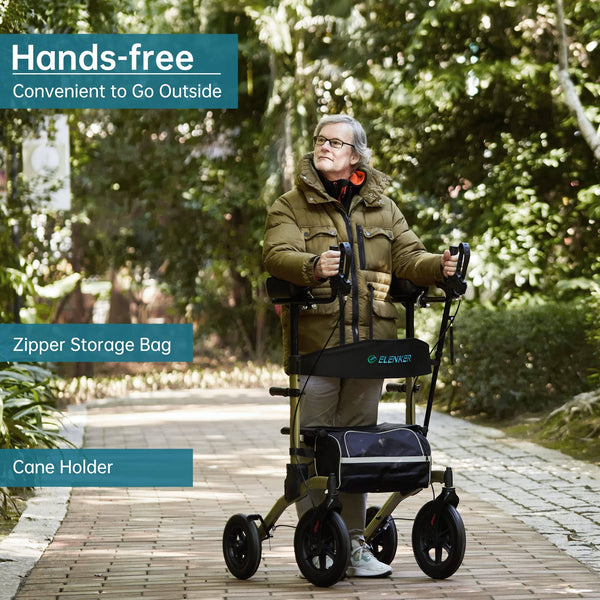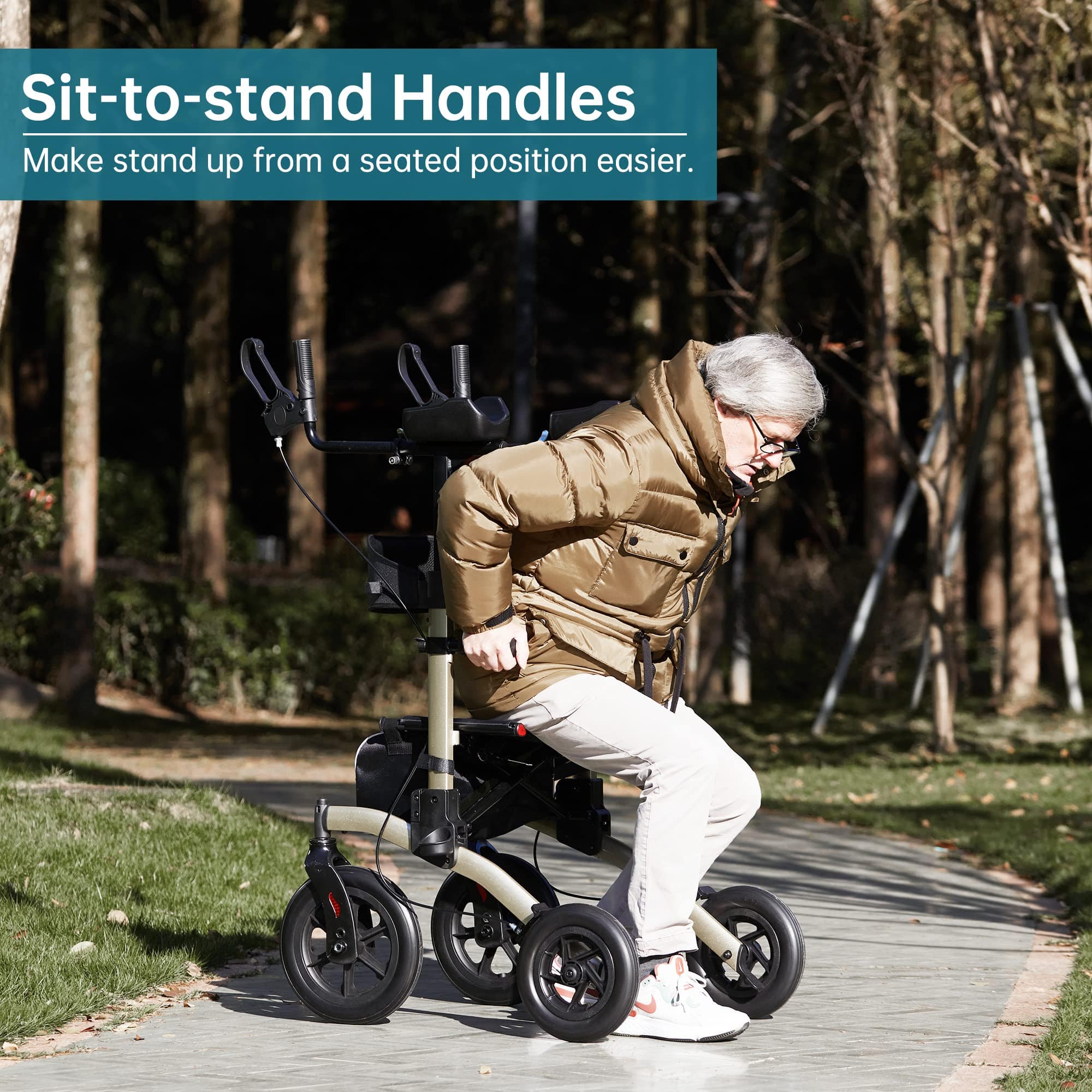Are Rollators Suitable for People with Ankylosing Spondylitis?
May 18, 2025
Living with ankylosing spondylitis (AS) is no picnic. It’s one of those conditions that shows up uninvited, sticks around for life, and likes to make everything a bit more challenging—from getting out of bed in the morning to taking a simple walk around the block. When your spine feels stiff, your joints are sore, and your posture’s not what it used to be, even the easiest everyday activities can feel like a workout.
So, it’s only natural to wonder: Can a rollator help? Is it something worth considering if you have ankylosing spondylitis?
Let’s talk it through.
When Ankylosing Spondylitis Messes With Your Mobility
First off, if you’re dealing with AS, you already know how much it can affect your mobility. That chronic pain and stiffness—especially in the lower back and hips—can make it tough to stand or walk for long periods. As the condition progresses, it can even start messing with your spinal health and your posture. People with AS often develop a forward-stooped stance, which not only affects balance but can also make walking feel awkward or exhausting.
This is where the idea of a mobility aid starts to sound pretty appealing.
So... Is a Rollator a Good Fit?
Short answer: Yes, it can be—but with some conditions.
A rollator can be a really helpful tool for people with AS, especially when fatigue, stiffness, and pain start interfering with your ability to walk safely or comfortably. Here’s why:
1. Better Support Without the Bulk
Unlike a traditional walker, a rollator doesn’t make you feel like you're dragging something clunky around. It's designed to move with you. The wheels make it easier to glide forward, and the handlebars give you something to hold onto if your balance feels a bit off. For someone with AS, that kind of light support can make a big difference.
2. Posture-Friendly Design
This is a big one. If you’re dealing with the classic AS forward-stoop posture, it’s important that any mobility aid you use doesn’t force you to hunch more. Some rollators are adjustable in height, which means you can raise the handles to encourage a more upright stance. That’s super important for spinal health, especially if your goal is to keep moving without putting extra strain on your back.

ELENKER HFK-9240-2 All-Terrain Upright Rollator Walker encouraging a more upright stance
Just a heads-up, though: not all rollators are created equal. Some are better suited for people with posture issues than others. You’ll want one that promotes a natural, comfortable arm position and doesn’t make you bend forward to reach it.
3. Built-in Rest Stops
Here’s a little perk: most rollators come with a built-in seat. Sounds like a small thing, but when fatigue and chronic pain hit mid-walk, having a place to sit down for a few minutes can be a total relief. It allows you to stay active without worrying about finding a bench every five minutes.

ELENKER HFK-9240-2 All-Terrain Upright Rollator Walker comes with a built-in seat and sit to stand handles
Things to Look For in a Rollator if You Have AS
If you’re considering getting a rollator and you have ankylosing spondylitis, here are a few things to keep in mind:
Adjustable handle height: This helps support better posture and reduces strain on your shoulders and back.
Ergonomic grips: Your hands and wrists may also feel the effects of inflammation. Comfortable grips can make a difference.
ELENKER MT-8151 Upright Walker Stand Up Rollator Walker with Padded Seat and Backrest Lightweight Compact Folding Fully Adjustment Frame for Seniors NEW
Lightweight frame: Easier to maneuver, especially on days when energy is low.
Wide seat and backrest: For resting when you need it.
Stable frame: Some rollators are sturdier than others. Go for something that feels solid and safe.
Bonus tip: If you can, try one out before buying—or at least look at reviews from other folks dealing with chronic conditions like AS.
But Wait—Is It Always a Good Idea?
While rollators can be a helpful mobility aid, they’re not a perfect fit for everyone. For example:
1. If your upper body is very stiff or your shoulder range of motion is limited, pushing a rollator might not be comfortable.
2. If you’re still relatively mobile and active, you might not need a rollator all the time—maybe just for longer outings or when you’re feeling extra sore.
3. And if your AS has progressed to the point where you’re having significant balance issues, a rollator might not offer enough support, and a different kind of aid might be more suitable.
Best move? Talk to a physical therapist or doctor who understands AS. They can help assess your posture, strength, and gait to recommend the best option for your body.
Getting Comfortable With the Idea of Using One
Here’s something that doesn’t get talked about enough: a lot of people hesitate to use mobility aids because they’re worried about how it looks. There’s this outdated idea that using a rollator means you’re “old” or “giving up.”
But here’s the truth: using a tool that helps you stay active and independent is not giving up—it’s smart. If something helps you walk longer, feel safer, and enjoy life more, what’s the downside? AS is already tough enough. Why make things harder than they need to be?
Think of it this way: you wouldn’t skip using a good pair of shoes if your feet hurt, right? A rollator is just another tool to help you live better with a chronic condition.
So, are rollators suitable for people with ankylosing spondylitis?
Yes, absolutely—if it matches your needs.
When chosen thoughtfully, a rollator can support better posture, ease chronic pain, and help you stay active without overexerting yourself. It's not about “giving in” to your condition. It's about adapting smartly to what your body needs, so you can keep doing the things you love—whether that's walking your dog, grocery shopping, or just getting some fresh air without worrying about how far you’ll make it before needing to sit down.
If AS is slowing you down, a rollator might be just the assist you need to keep moving forward—literally.











